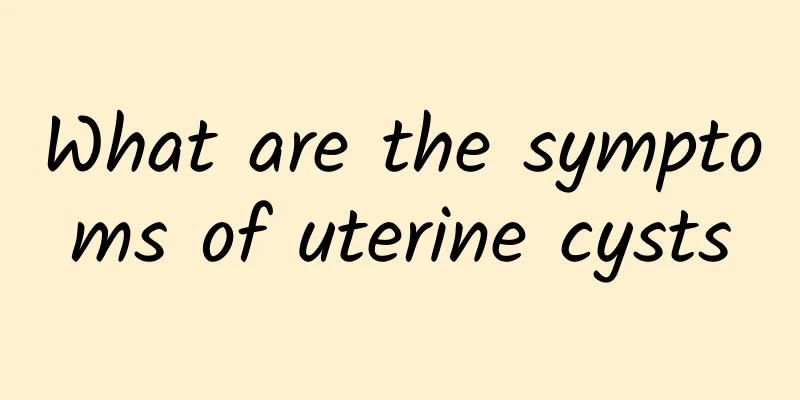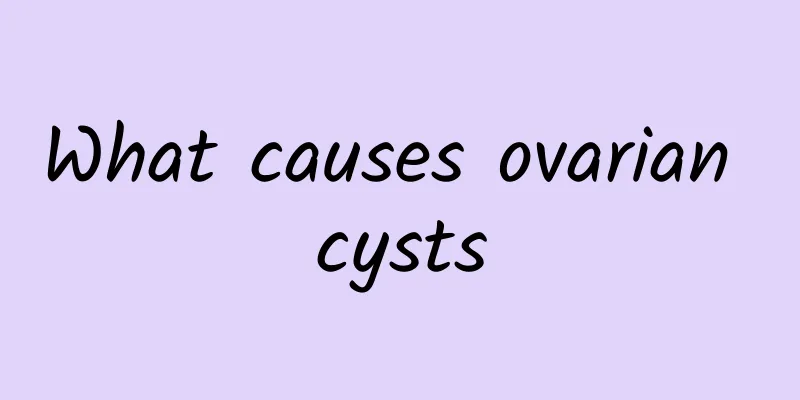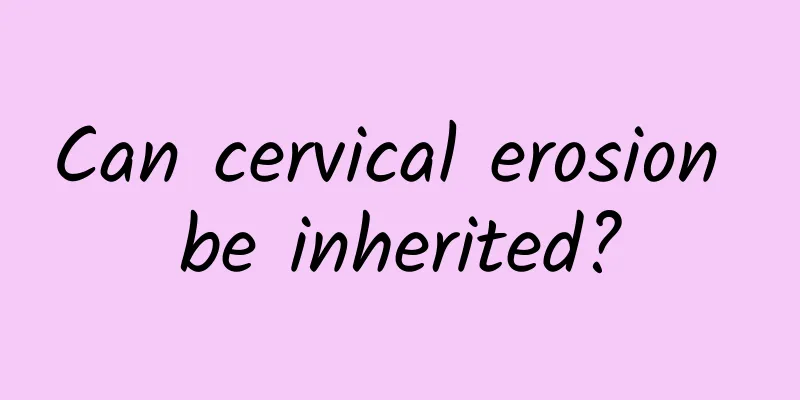What are the symptoms of uterine cysts

|
The symptoms of uterine cysts depend on their size, location and cause. Small cysts usually have no obvious symptoms, while large or complex cysts may cause abdominal pain, menstrual disorders, infertility and other symptoms. In severe cases, timely medical treatment is required. Common symptoms include abdominal discomfort, menstrual abnormalities and pelvic pain. It is recommended to screen and diagnose and treat as soon as possible according to the symptoms. 1. Abdominal discomfort: When a uterine cyst is small, it may be ignored. However, when the cyst gradually grows, it will compress the surrounding tissues, causing abdominal distension, a feeling of heaviness, or mild discomfort in the waist and abdomen. If the cyst suddenly ruptures, it may also cause severe abdominal pain. In such cases, you need to go to the hospital immediately. Treatment options include symptomatic analgesics, and in severe cases, laparoscopic surgery can be used to remove it. 2 Menstrual disorders: Uterine cysts may interfere with the normal function of the endometrium, leading to abnormal menstruation, including menorrhagia, prolonged menstruation, or severe menstrual pain. These symptoms are often mistaken for common dysmenorrhea, but if they persist, you should be alert to uterine diseases. For menstrual disorders, common treatments include endocrine regulating drugs such as progesterone or surgical removal of cysts to restore normal cycles. 3 Infertility and associated symptoms: If the cyst affects the morphology of the fallopian tube or uterus, it may reduce the probability of pregnancy in women, and some patients may also experience compressive symptoms such as frequent urination and urgency. Treatment methods include assisted reproductive technology for infertility, or surgical removal and restoration of the normal anatomical structure of the reproductive system. Large or symptomatic cysts always require evaluation by a doctor, and imaging tests such as ultrasound can be used to determine the nature of the cyst. Treatment options include medication control, puncture therapy, or surgical removal, depending on the patient's specific circumstances. For asymptomatic cysts, regular follow-up can be performed to monitor changes. If women experience persistent abdominal discomfort, menstrual disorders or reproductive problems, they should consult a professional as soon as possible to avoid delays in the treatment of the disease. Developing good habits of regular physical examinations and paying attention to their own health is an important way to prevent and detect cysts early. |
<<: How to relieve the pain in my stomach during my period
>>: Is vaginitis and adnexitis difficult to treat?
Recommend
The best medicine for treating hyperprolactinemia
Hyperprolactinemia (HPRL) is a common reproductiv...
Ruisha lost 10 kilograms after giving birth, and is thinner than before pregnancy! Key: Replace rice with this...
After giving birth to her daughter Nika, Taiwanes...
What does progesterone mean during menopause?
During laboratory tests, the progesterone test re...
What causes abnormal leucorrhea after menopause?
Menopause is usually a permanent cessation of men...
Losing weight is no longer difficult! Learn 7 healthy eating rules
Why are there always so many forms to fill out in...
Coughing is not a disease, but it can be fatal! Nutritionist Li Yihua: 5 must-eat foods to protect your throat, and 3 NG foods to avoid
Coughing is not a disease, but it can be fatal! W...
Which hospital is reliable for treating vulvar leukoplakia
Which hospital is reliable for treating vulvar le...
Are you a "cold-blooded animal"? 4 ways for office workers to save blood circulation
As an office worker, do you often feel cold hands...
What department should I go to if I have uterine fibroids after menopause? What should I do if I have uterine fibroids after menopause?
What department should I go to if I have uterine ...
How long does it take to get pregnant after a miscarriage, and how should I adjust?
For couples who want a baby, if an accident happe...
Let me introduce the nursing measures for chronic pelvic inflammatory disease
Chronic pelvic inflammatory disease is a disease ...
What's wrong with abortion stomach pain?
Abdominal pain generally refers to abdominal pain...
Women who have had an abortion must learn how to take care of themselves
Nowadays, abortion surgery is more and more commo...
Postmenopausal cervical bleeding
Postmenopausal cervical bleeding may be caused by...
Are the symptoms of cervical precancerous lesions serious?
There are many symptoms of cervical precancer. As...









